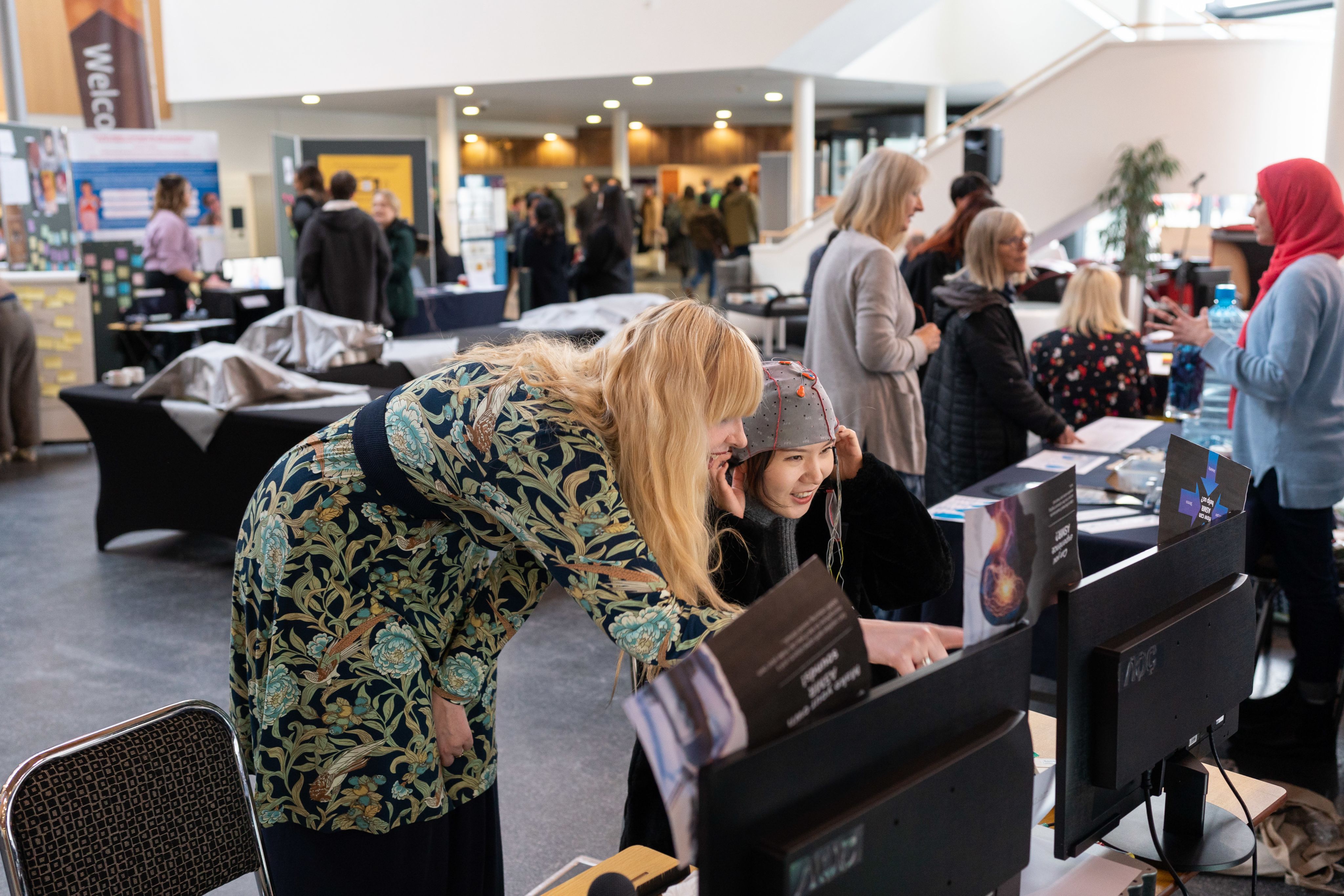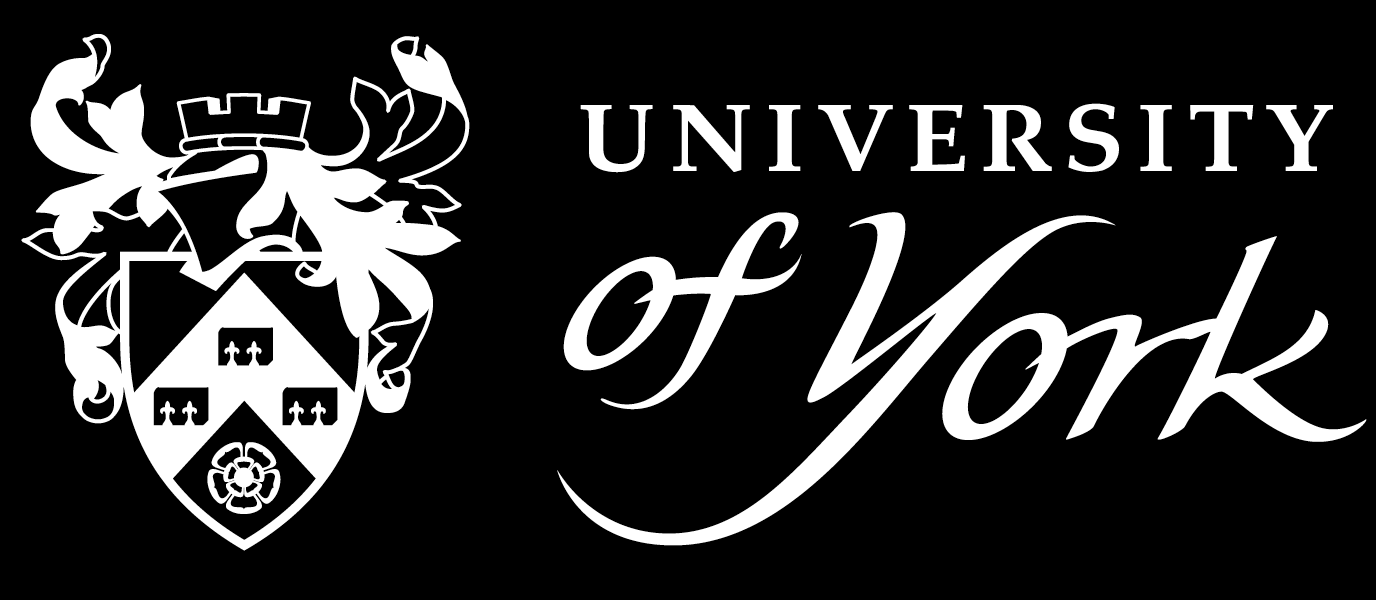PHD SPOTLIGHT
WEDNESDAY 10 JANUARY 2024
11AM - 4PM, PIAZZA BOX, PIAZZA BUILDING
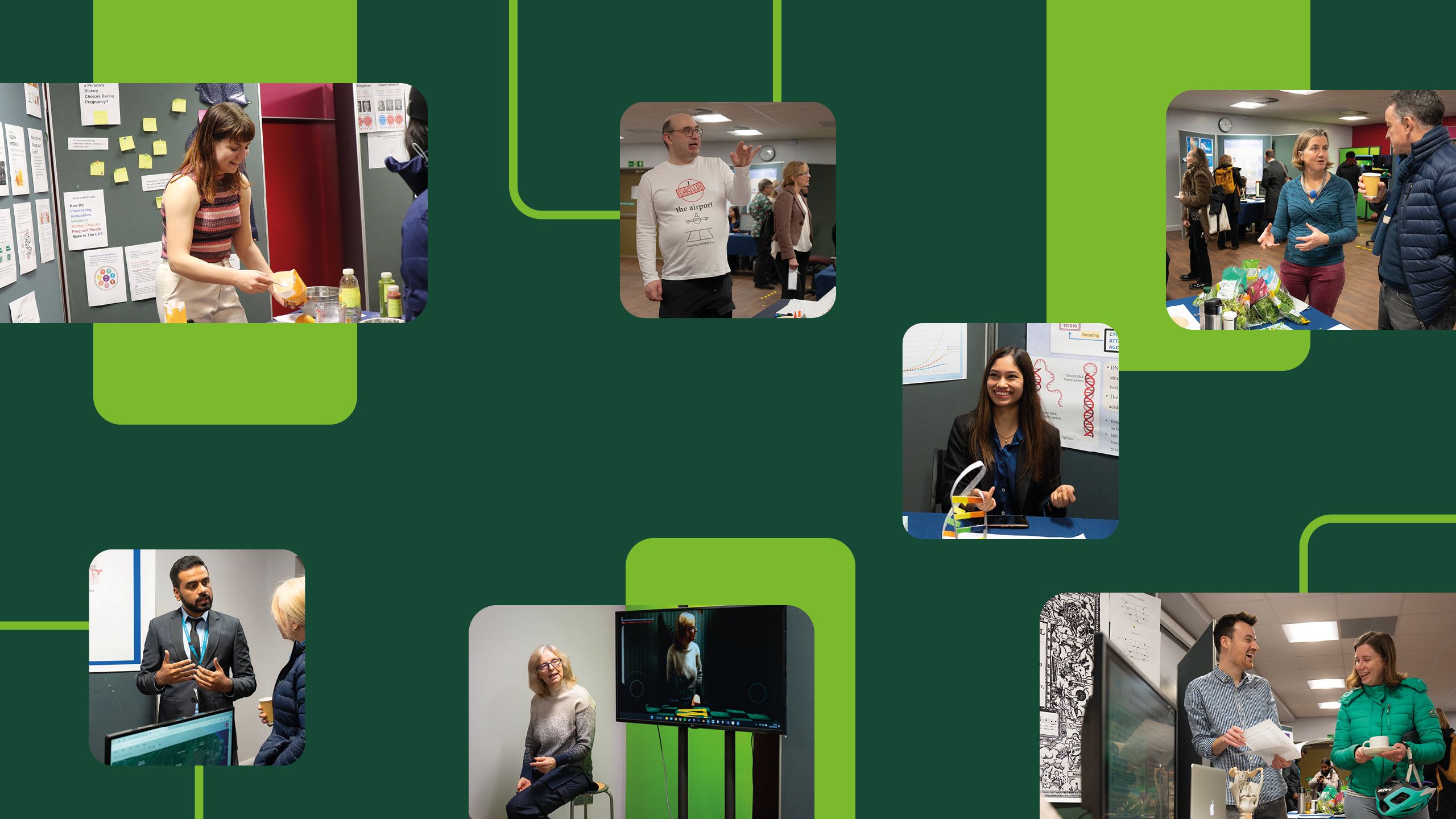
About phd spotlight
The Competition
The PhD Spotlight competition challenges postgraduate researchers to engage the public with their original and cutting edge research, through the medium of an interactive display/experience.
Created by the York Graduate Research School (YGRS) in 2015, PhD Spotlight originally began as a poster competition, and has since evolved to allow for greater creativity and range of mediums.
Today, finalists are provided with limited resources (a table, a screen, a display board, and a poster), and are tasked with transforming these resources into interactive and engaging experiences.
A celebration of research
The PhD Spotlight competition forms part of the University's annual YorkTalks event: a fascinating exploration of research happening at York. The PhD Spotlight competition specifically focuses on researchers who are at the beginning of their research journeys, highlighting the exciting future of research.
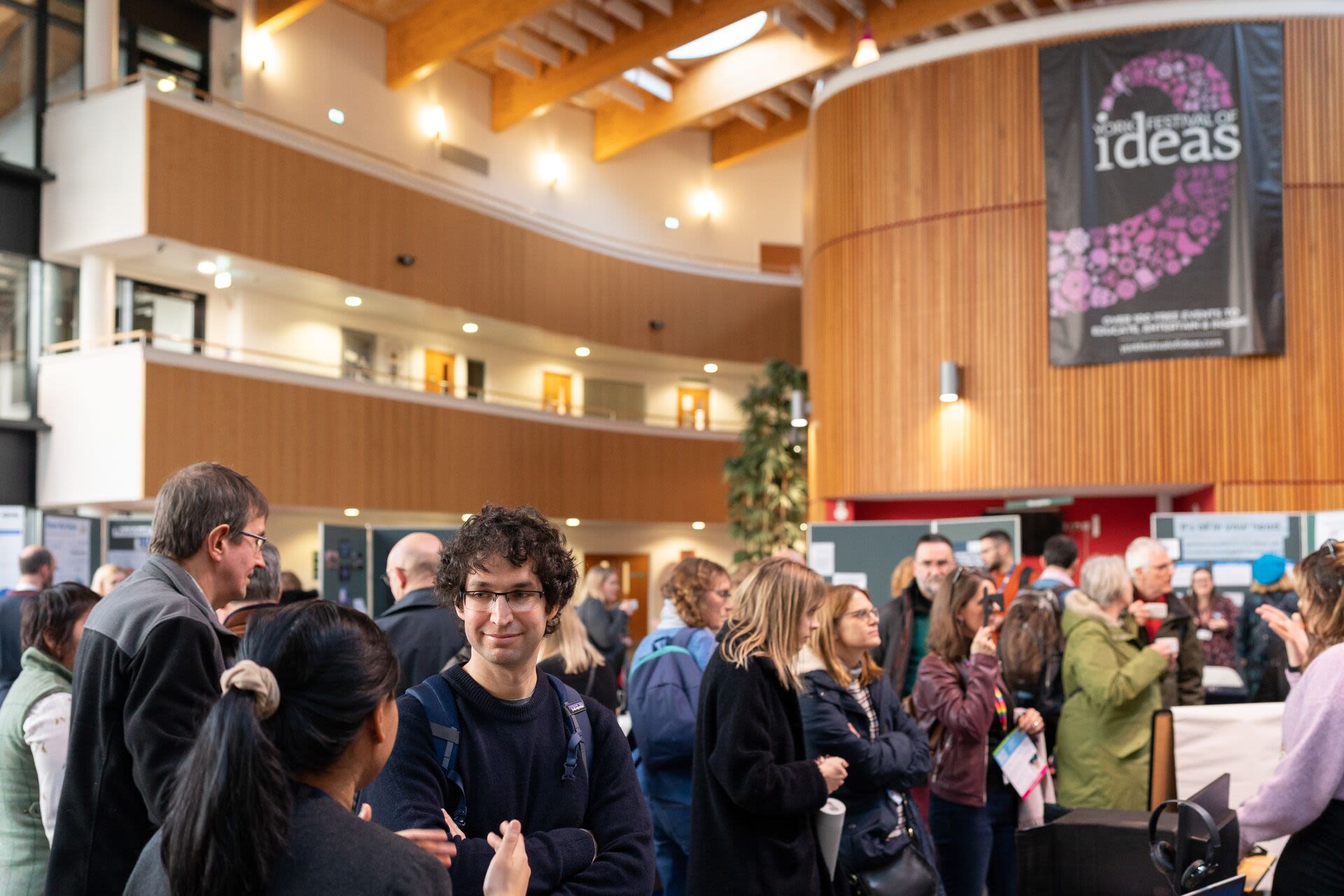
2024 FINALISTS
Cancelled!
Andrew Sage
Summary
1970s Britain was a political and economic turbulent time. The first half of the decade saw three General Elections with swings from Labour to the Conservatives and back again. Inflation was a constant problem, reaching nearly 24% in 1975. The 1970s also saw the cancellation of multiple transport infrastructure projects including: a third London airport to be built on reclaimed land on the Essex coast; a Channel Tunnel over a decade before work for today’s tunnel began; and motorways through London. Large scale projects like these involve multiple organisations and secondary projects which all affect the overall outcome. Using these 1970s British cancelled projects as case studies, I am researching the impact of changing political and economic policymakers on the management and goals of long running, large scale infrastructure projects. My initial research is focused on the case study of the third London airport at Maplin Sands on the Essex coast.
About Andrew
Andrew Sage is a first-year PhD researcher in the field of Business Management History at the School of Business and Society, University of York, where he also obtained his MA in Railway Studies. His PhD research, using archival material, investigates the impact of changing political and economic policymakers on the management and goals of long running, large scale infrastructure projects.
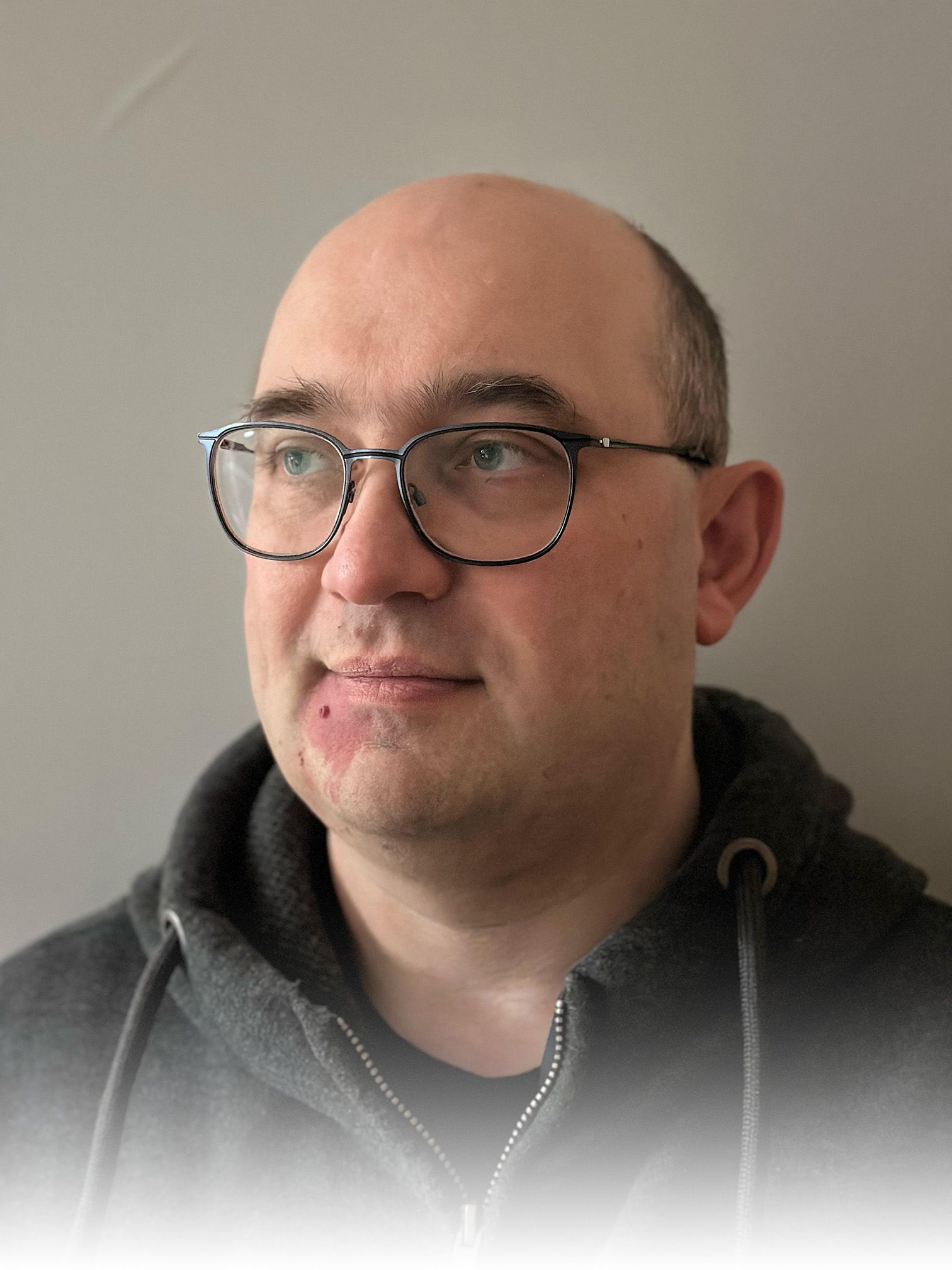
"1970s Britain was a political and economic turbulent time."
"1970s Britain was a political and economic turbulent time."
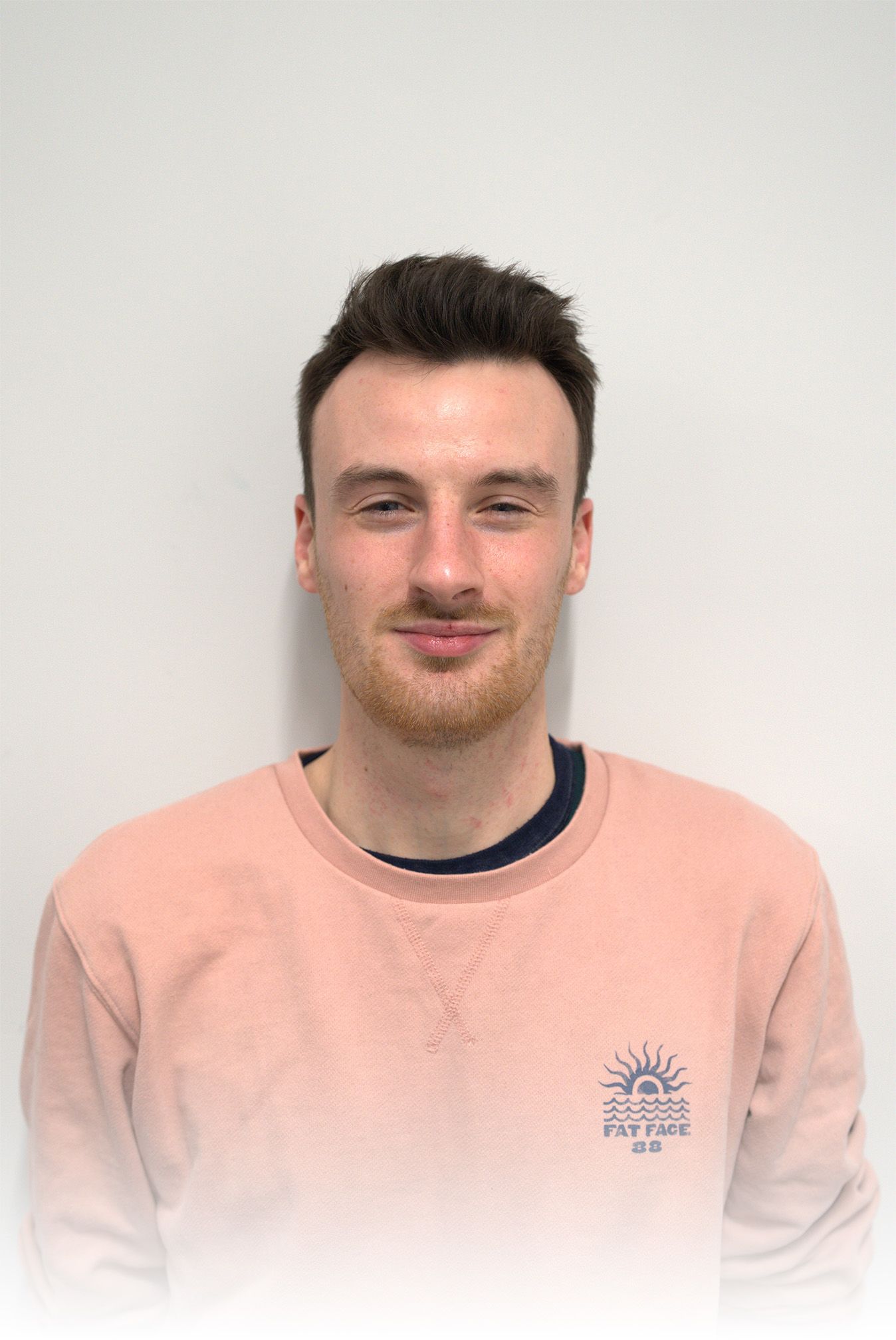
"Since the 1950s, singers approaching earlier music have drawn upon historical evidence to inform their performances."
"Since the 1950s, singers approaching earlier music have drawn upon historical evidence to inform their performances."
Historical pronunciation for early modern Song
benjamin maloney
Summary
Since the 1950s, singers approaching earlier music have drawn upon historical evidence to inform their performances. Historical pronunciation, however, represents a crucial aspect that is not currently a part of this process. The sound of English has changed substantially in 500 years; nonetheless, early songs are usually performed with modern received pronunciation. The result is that the stresses of the text no longer align correctly with the music, and the rhymes are compromised. Scholars interested in reforming spelling during the Renaissance provided us with detailed evidence about the sounds of their speech. Unfortunately, this information is seldom applied to the music of their time. My objective is to document the connection between music and language in England 1540-1690, and to create a method for incorporating historical pronunciation into modern performances of early music. I hope to recover a lost element of the sound of England's rich song heritage.
About Benjamin
Benjamin, a second-year PhD student in Music and Linguistics, specialises in historical musicology. His research centres on the music and musical culture of early modern England and colonial North America during the sixteenth and seventeenth centuries. Benjamin earned his undergraduate degree in music from the University of York, and a master's degree from the Royal Northern College of Music in Manchester, focusing on historically informed performance. His doctoral work on philology focuses on reconstructing the sound of Early Modern English, examining evidence on how earlier musicians may have approached singing in their language during and after the Reformation.
You are what you eat: food culture and identity in northern roman britain
lucy makinson
Summary
What and how we cook, eat and drink is associated with culture and identity today, and shines a light on the past too. Roman trade and conquest was accompanied by the spread of Mediterranean and other food cultures, seen in ingredients (olive oil, wine, fish sauce), in cooking and eating vessels, and in the social practices of dining.
However, like today, in consuming their meals, people in the past adapted food culture to suit their lives. Archaeological pottery, food residues, plants and animal remains indicate several Roman food cultures in Britain, as well as native traditions. It seems there was no typical Roman food culture, and that consumption patterns followed local economic and social contexts. My analysis of pottery and food residues on vessels explores what and how people cooked in the relatively under-studied civilian northern Britain, how they adopted and adapted cooking and dining practices, and what this tells us about identity and mobility.
About Lucy
Lucy is a second-year PhD researcher in the Archaeology Department. Her research investigates Roman food cultures in northern Britain through the study of pottery and food residues from archaeological sites.
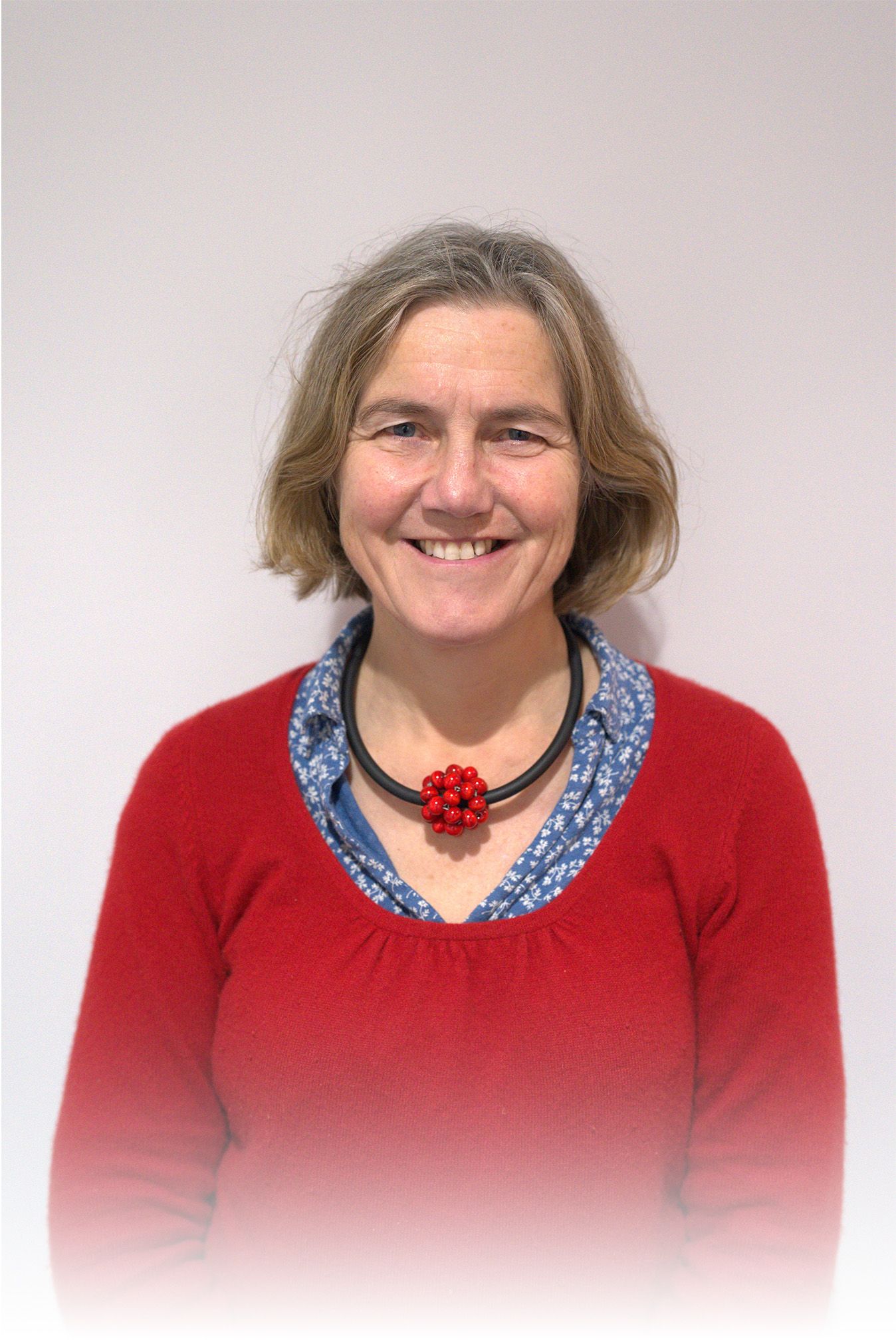
"Archaeological pottery, food residues, plants and animal remains indicate several Roman food cultures in Britain, as well as native traditions..."
"Archaeological pottery, food residues, plants and animal remains indicate several Roman food cultures in Britain, as well as native traditions..."
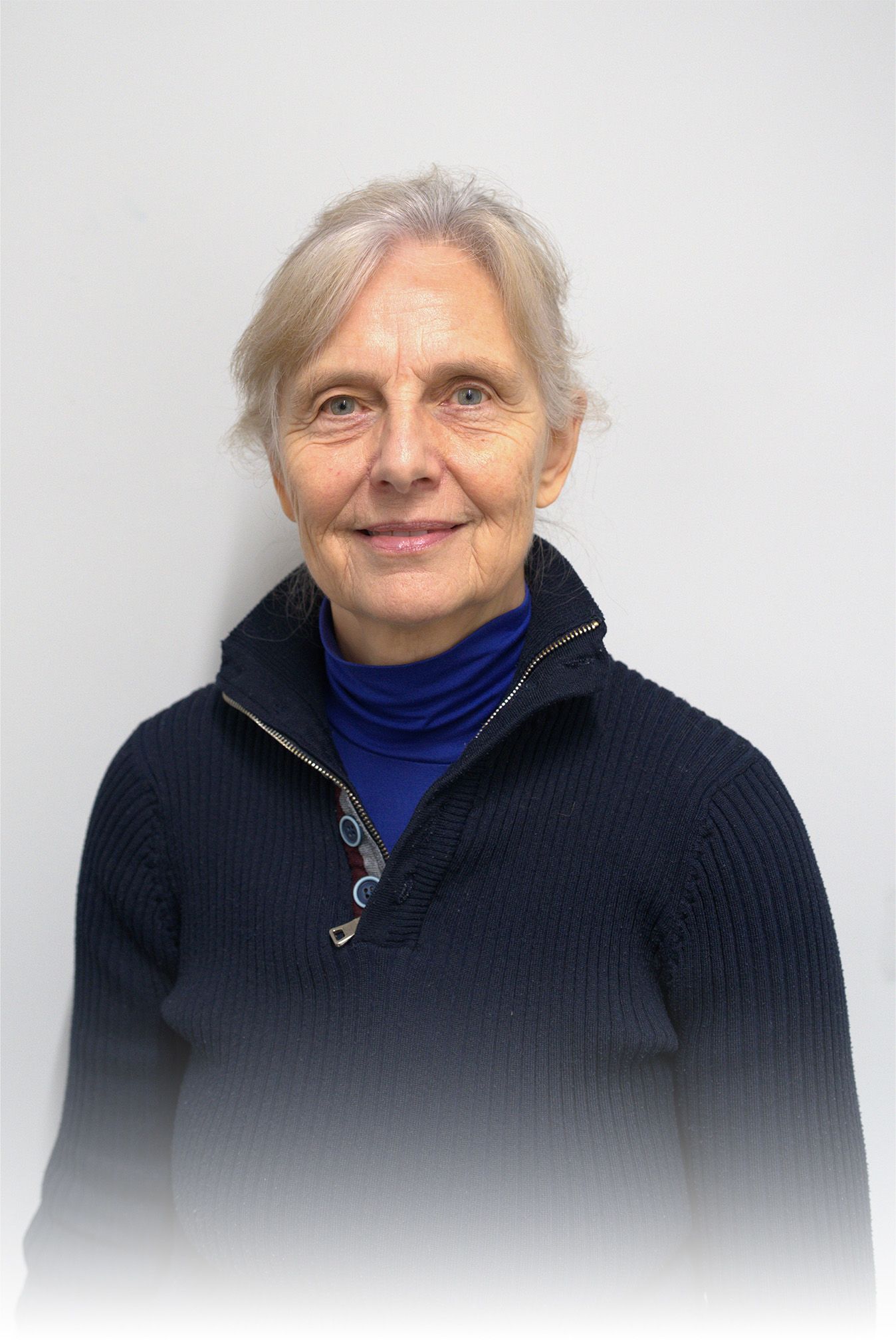
"We created a series of short musicals to be performed live in browser-based VR..."
"We created a series of short musicals to be performed live in browser-based VR..."
making musicals in the metaverse: virtual production for live performance
mary stewart-david
Summary
One of the very few benefits of the pandemic was to drive musical theatre creatives online. Once we realised that the Zoom musical was a poor substitute for physical productions, we started to look at using Virtual Reality (VR) for staging live performances across networks.
With a team of virtual theatre-makers from the School of Arts and Creative Technologies, and support from HRC, XR Stories and Story Futures, we created a series of short musicals to be performed live in browser-based VR (ie VR that can be experienced on a PC as well as in a VR headset).
With our external collaborators (notably Professor Rob Morgan from Washington University, St Louis) we have made a range of prototypical small scale musicals for VR, and Virtual Production for film, which demonstrate that the narrative function of the virtual musical can work in much the same way as in any physical stage production.
About Mary
Mary Stewart-David is a writer and lyricist in musical theatre and film currently completing a PhD by Practice at the School of Arts and Creative Technologies, University of York. Her research is centred on the narrative function of the traditional book musical in immersive and interactive environments, both physical and virtual. With a team of creative technologists from the University of York, she is currently using games engine technology to stage live and recorded musical theatre performance in Virtual Reality and Virtual Production for film.
the immune system gone rogue: why do sometimes our biological defenders stop protecting us and favour disease?
muhammad asad Kamran
Summary
The immune system is our network of cellular warriors that defends us against attacks by invading pathogens. As long as our immune system is running smoothly, we remain healthy. But if it stops working properly, we get ill. On rare occasions, the immune system finds it hard to distinguish between invading pathogens and our own cells, and ends up attacking our own tissues. This defence “error” is called “autoimmunity”. My PhD project aims to uncover how infections can lead to autoimmunity, by studying Trypanosoma cruzi / Chagas disease as an infection model. Chagas is a neglected tropical disease, and triggers autoimmunity against the heart. It is the leading cause of infectious heart disease worldwide, and therefore has the highest impact of a parasitic disease of the western hemisphere.
I will try to outline how this disease develops, and how we can address the problem of autoimmunity to favour development of novel improved treatments.
About Muhammad
Muhammad is a first-year Biomedical sciences DiMeN DTP PhD candidate in Immunology and Parasitology from Hull York Medical School based at the Biology Department. His project aims at discovering the main molecular and genetic markers of parasite-specific and autoreactive heart-specific B cells in T. cruzi infection and understanding the function of B cells which have infiltrated the heart of parasite infected mice. He is trying to explore the functional mechanisms by which parasite-specific and heart-specific B cells contribute to host protection and cardiac pathology in Chagas disease. Besides science, Muhammad has experience in trade and building start-ups.
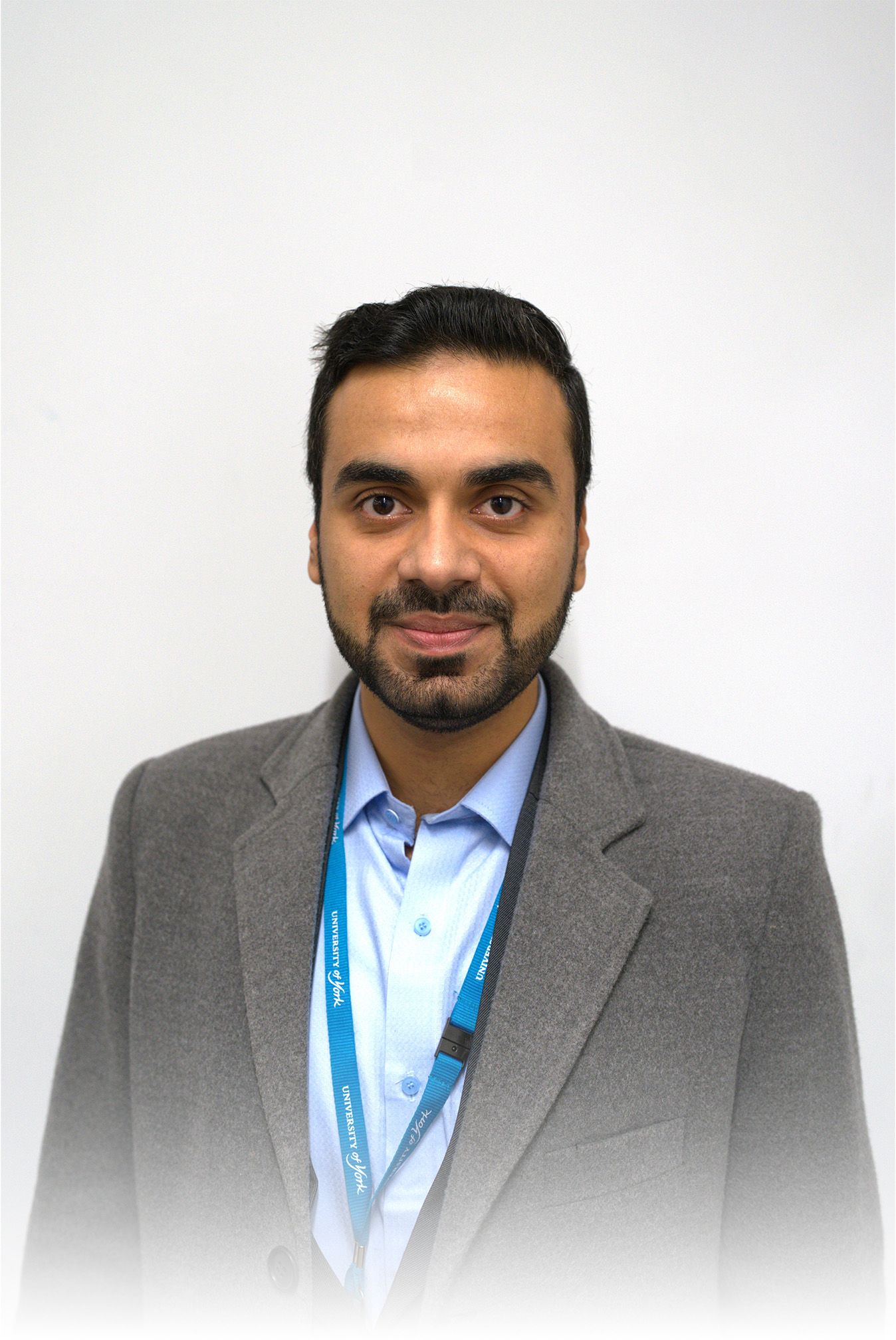
"...how can we address the problem of autoimmunity to favour development of novel improved treatments?"
"...how can we address the problem of autoimmunity to favour development of novel improved treatments?"
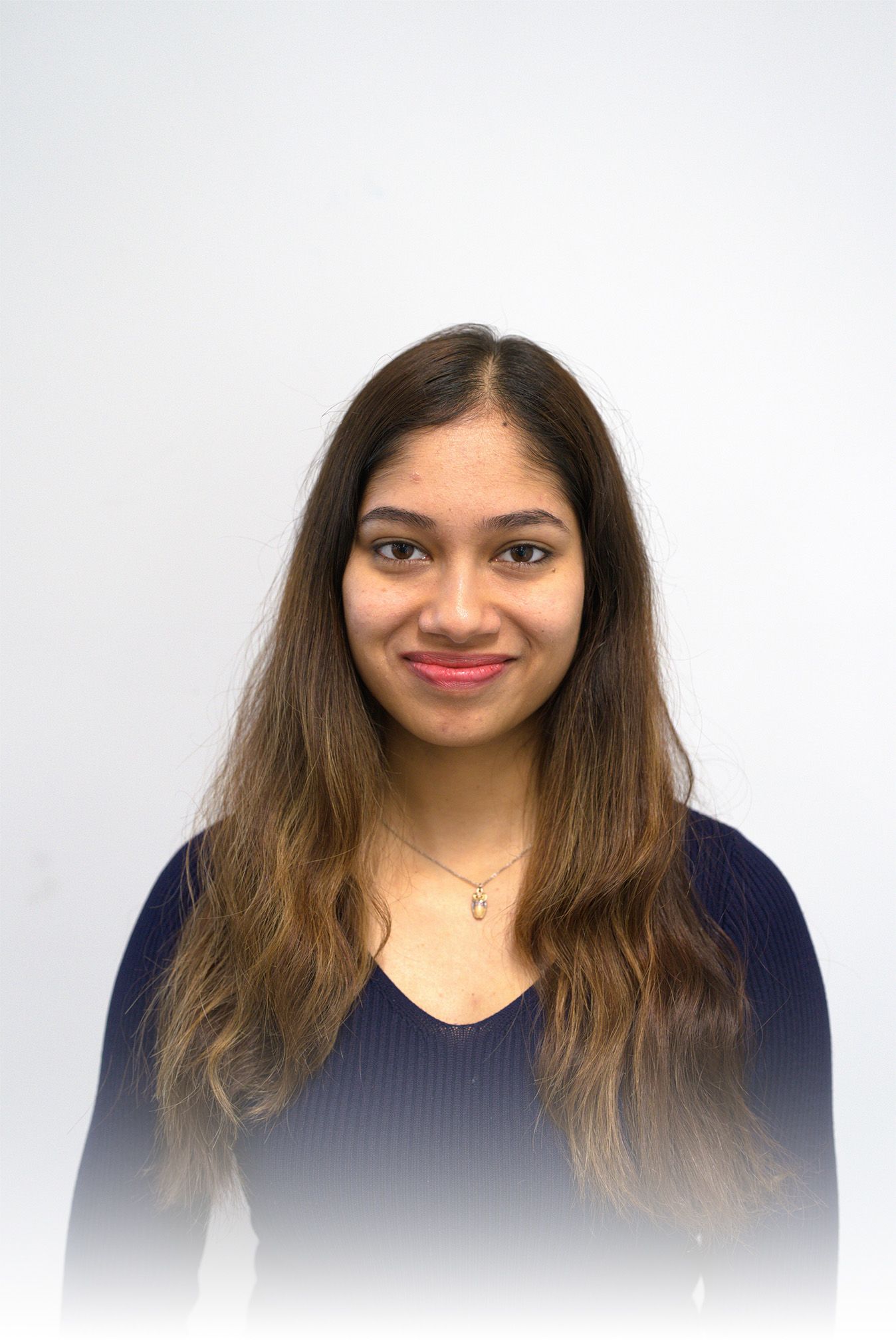
"DNA can store dense amounts of data, lasting up to 1000 years"
"DNA can store dense amounts of data, lasting up to 1000 years"
DNA: A new strand of data storage
Francisca d'rozario
Summary
In today’s world, there is a never-ending need to store digital photos, documents, videos and more in devices such as smartphones, laptops, CDs, hard drives and the “cloud”. Data centres around the world consume a vast amount of electricity and their growth will be unsustainable beyond the next decade. Therefore, it is vital to switch to stable and environmentally-sustainable data storage methods. DNA, prepared in a laboratory, can solve these issues. DNA can store dense amounts of data, lasting up to 1000 years and reduce energy consumption by 1000 times compared to present data centres. My research focuses on DNA structures called DNA triplex switches, which can switch between two different structural forms when subjected to acids and bases, making one form data-readable and the other not. DNA switches, integrated into electronics, have the potential to serve as dense and durable data storage devices, saving energy and sparing the planet’s health!
About Francisca
Francisca D’Rozario is a third-year PhD student in the School of Physics, Engineering and Technology studying DNA nanotechnology, funded by EPSRC. She has a Masters in Nanoscience and Technology Degree from India, and her present research focuses on DNA structures called DNA triplex switches, which have the potential for integration into electronics as a digital data storage system. Francisca is interested in studying the kinetics and thermodynamics of such DNA structures to fully uncover their potential as beneficial tools for modern biotechnology and bioelectronics.
it is cheaper to be fat, but what does it cost you?
Sarah veale
Summary
Dive into "It is Cheaper to be Fat, But What Does it Cost You?"—an eye-opening exhibit that explores the influence of poverty on the dietary choices, encompassing both preference and accessibility, of pregnant individuals in the UK.
Through vivid visuals and interactive activities, explore the stark differences between highly and minimally processed diets in the UK. Engage in activities to grasp the real-world challenges families face in making nutritious yet affordable choices. This exhibit seeks to dispel pregnancy nutrition myths whilst highlighting commonly held misconceptions about nutritional content in foods, to iterate the profound effects of our daily meal choices.
This immersive experience propels conversation on the realities of the Cost of Living Crisis, emphasising the expanding social inequalities in the UK, disproportionately felt by vulnerable communities. Engage with this display to strengthen your own understanding of dietary: choices, constraints and ideas experienced by pregnant people in the UK.
About Sarah
Guided by an intersectional feminist approach, Sarah recognizes the importance of comprehending and emphasising the individualised and multifaceted influences pregnant people experience, particularly considering factors such as: gender, socioeconomic status, and cultural contexts.
Eager to engage the public, Sarah's accessible research sparks informed discussions, raising awareness of the intricate links between pregnancy, poverty, and dietary choices. Emphasising that government policies significantly shape these decisions, Sarah contends that responsibility for social inequalities extends beyond individuals. By spotlighting the magnitude of these disparities, she aims to advocate for extensive policy changes and secure sustainable support for historically vulnerable communities. #MadeByDyslexia
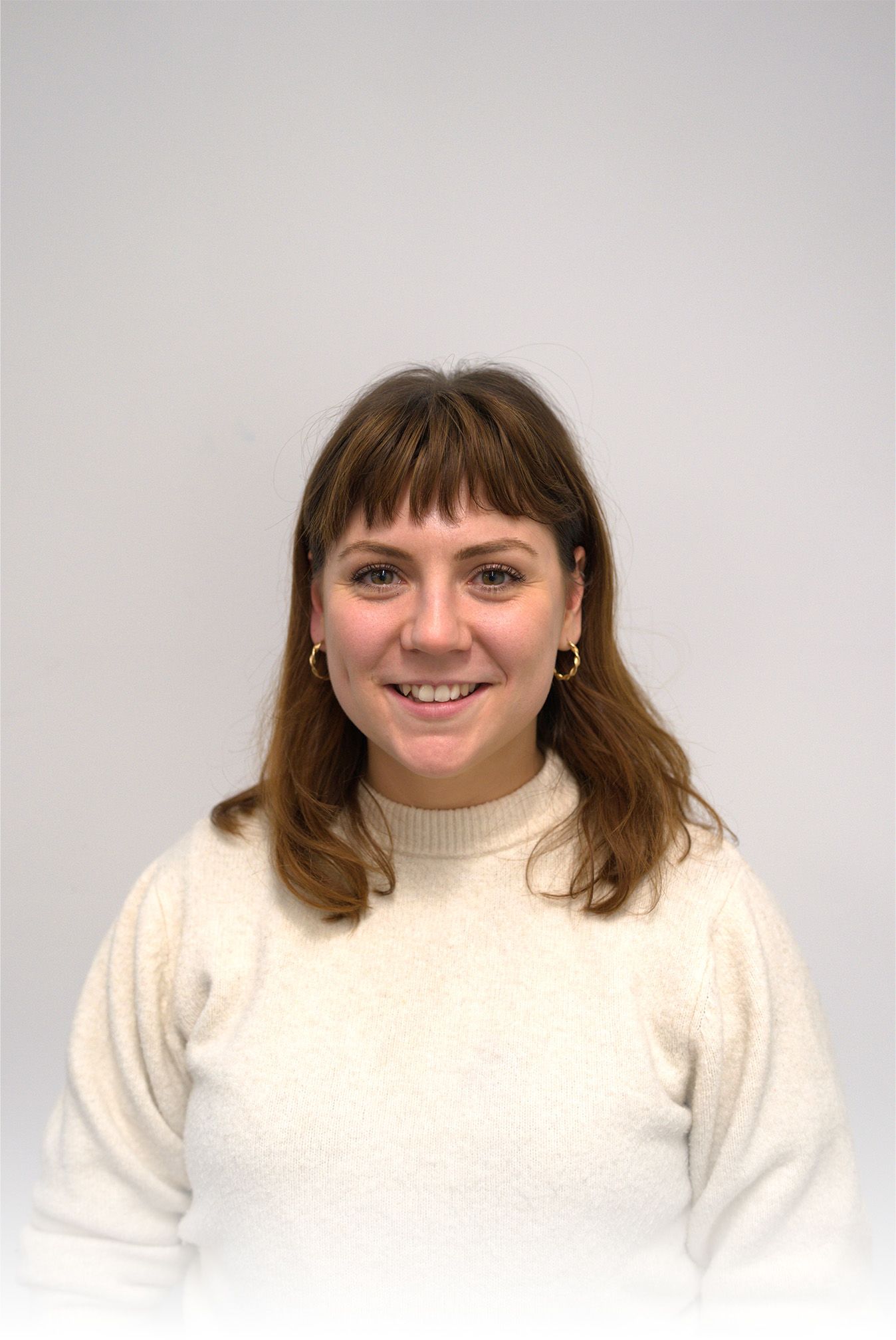
"...the expanding social inequalities in the UK [are] disproportionately felt by vulnerable communities."
"...the expanding social inequalities in the UK [are] disproportionately felt by vulnerable communities."
2024 WINNERS
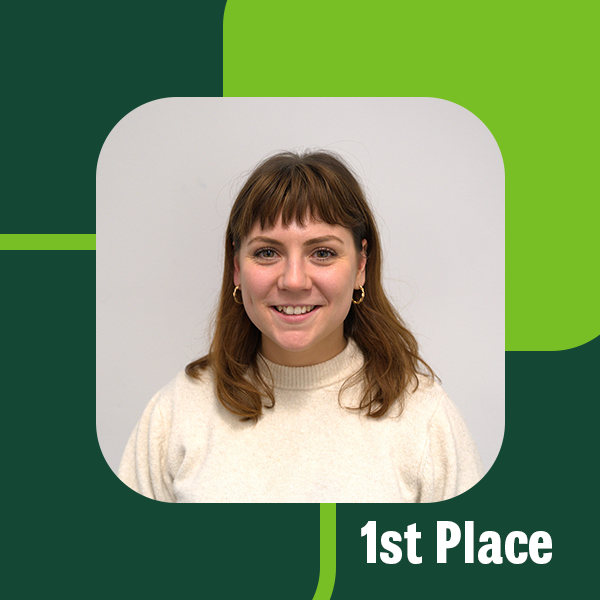
1st place
Sarah Veale, Department of Health Sciences
It is Cheaper to Be Fat, But What Does It Cost You?
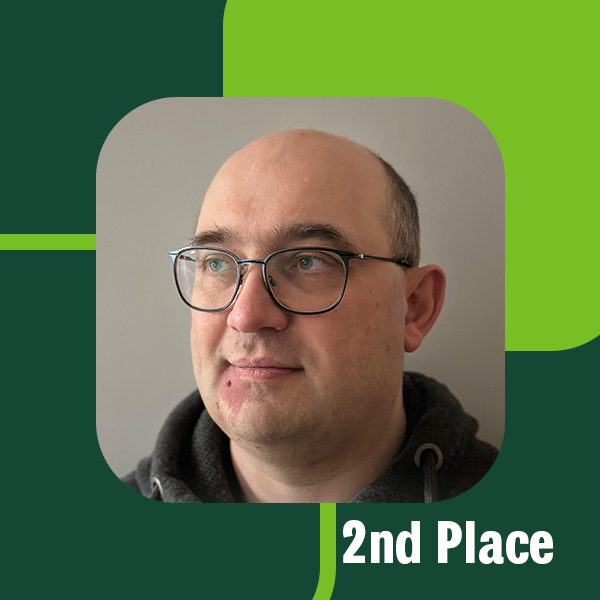
2nd place
Andrew Sage, School of Business and Society
Cancelled!
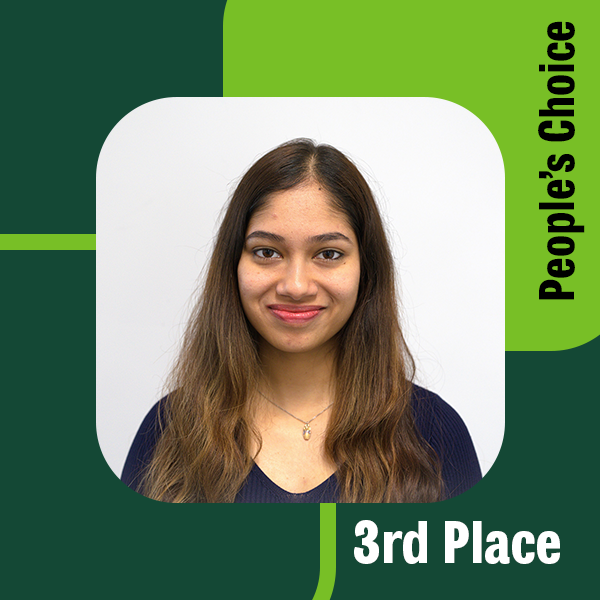
3rd place
People's Choice
Francisca D'Rozario, School of Physics, Engineering and Technology
DNA: A New Strand of Data Storage
JUDGING PANEL AND PRESENTERS
Our 2024 judging panel
In addition to our People's Choice Award, the work of our finalists was also reviewed by our panel, for first, second and third place prizes. In 2024, we were delighted to welcome members of our panel from a wide range of disciplines to help us choose our winner.
Read on below for a bit of background on each of our panelists.
Professor Kate Arnold
Dean of the York Graduate Research School and Professor of Ecology in the Environment and Geography Department, University of York
Having been Dean of the York Graduate Research School since September 2020, Kate has strategic oversight of over 2,400 postgraduate researchers.
An ecologist by background, for over 20 years she has carried out research at the interface of science, policy and regulation. Her current projects, based in York's Department of Environment and Geography, are investigating the effects of environmental change, including chemical contaminants and habitat management, on wildlife.
From 2018-2020, she worked for Defra heading up an EU exit strategy team focusing on circular economy and single-use plastic policies.
Charlotte Kingston
Head of Design, Exhibitions and Communications at the National Railway Museum
Charlotte Kingston has been the Head of Design, Exhibitions and Communications at the National Railway Museum (NRM) since 2018. She leads on the public programme of exhibitions and displays for NRM and oversees internal and external communications at both NRM in York and its sister museum Locomotion in Shildon, County Durham.
She has also led key pieces of strategic change at the museum, and plays an active role in the development and delivery of NRM’s transformative c.£95m masterplan. Charlotte previously worked as a freelance consultant and curator, with clients including the IKEA Museum in Sweden, the National Library of Ireland, the V&A and the Horniman Museum in London, as well as a broadcaster and researcher.
Dr Stuart Higgins
UKRI Future Leaders Fellow and Lecturer in Biomedical Engineering in the School of Physics, Engineering and Technology
Stuart is a UKRI Future Leaders Fellow and Lecturer in the School of Physics, Engineering and Technology. His research focuses on the interface between cells, biomolecules and engineered materials and bioelectronics. He has a particular interest in the role electricity plays in regulating life.
Stuart has been involved in public engagement for over 15 years. He was the Daphne Oram Award Lecturer at the 2019 British Science Festival, a winner of I’m a Scientist Get Me Out of Here, and has previously participated in poetry-based and comedy-based science engagement projects.
His personal projects include Science in the Supermarket, which promoted STEM to young families to help raise the aspirations of 8-12 year olds. The project used the ideas of science capital and neutral third spaces (such as supermarkets), to introduce young people to science outside of traditional school, university or museum settings.
Stuart has also produced a radio mini-series for The Naked Scientists called Down to Earth, broadcast on BBC Radio, and is the producer of Scientists not the Science, an award-winning podcast on research culture.
Find out more about Stuart below:
Professor Rachel Cowgill
Professor of Music in the School of Arts and Creative Technologies, University of York
Rachel is a professor of Music in the School of Arts and Creative Technologies. Her background is in cultural-historical musicology, with a focus on British music and musical cultures; opera studies; music, conflict and commemoration; and music, gender and identity.
Rachel is passionate about creativity, interdisciplinary collaboration, academic outreach and bringing research to the public, and she appears regularly on TV and Radio (including episodes of the BBC’s Who do you think you are?). She has just finished a term as University Research Theme Champion for Creativity.
Rachel is also project lead for StreetLife, an immersive pop-up creative and cultural hub in Coney Street, which has brought together music, print, and heritage teams to explore and celebrate the past, present and future communities of York’s city centre.
Megan Wright
PhD Researcher in the Education Department (University of York), and joint first-place winner and recipient of the People’s Choice award at the 2023 PhD Spotlight competition
Megan’s specialism centres around the attitudes toward adulthood. This includes how adulthood is defined, whether people see themselves as adults, and whether adulthood is perceived as a positive or negative time in somebody’s life.
Megan took part in the 2023 PhD Spotlight competition with her display Are you an adult? She was crowned joint winner (judge’s choice) and also the people’s choice award winner.
Megan submitted her thesis entitled ‘What makes an adult? An investigation into the psychology of modern adulthood’ in September 2023, and is currently undertaking an internship with the Hogan Research Institute, a branch of the personality research company Hogan Assessments.
Find out more about Megan’s research by visiting the project website and by reading her blog on psyche.
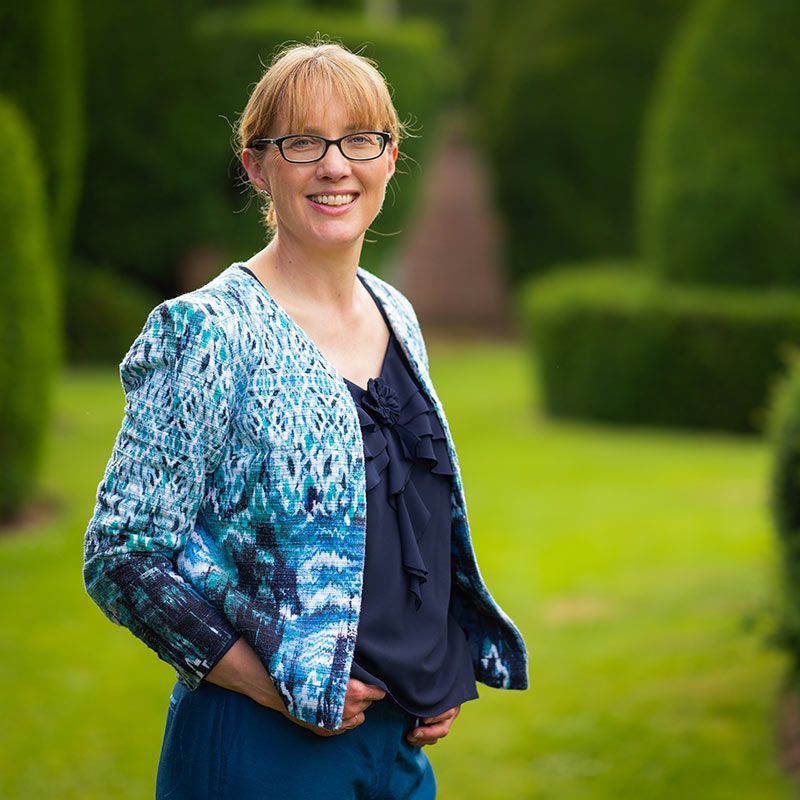
Professor Kate Arnold, Dean of the York Graduate Research School (University of York)
Professor Kate Arnold, Dean of the York Graduate Research School (University of York)
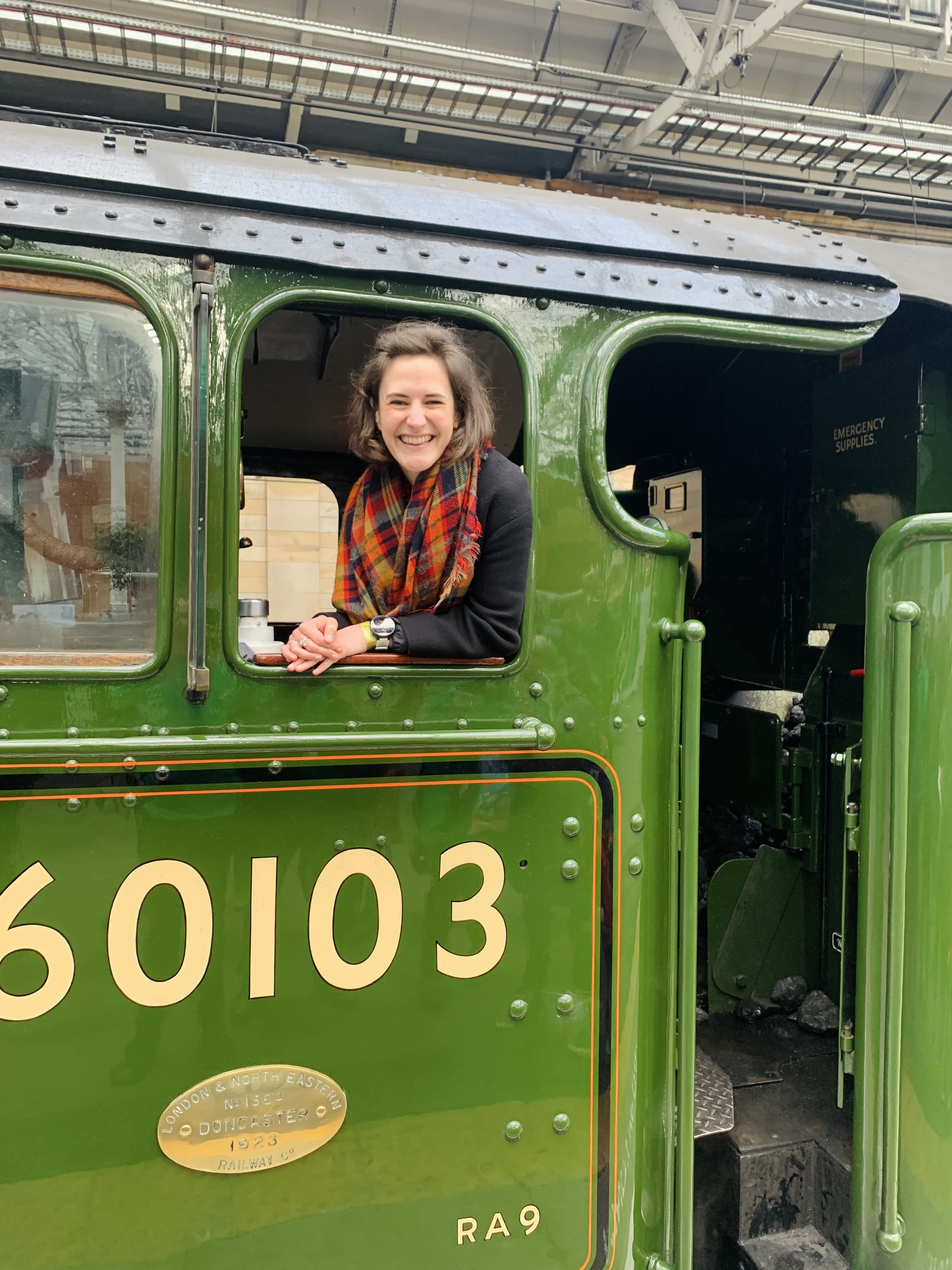
Charlotte Kingston, Head of Design, Exhibitions and Communications at the National Railway Museum (NRM)
Charlotte Kingston, Head of Design, Exhibitions and Communications at the National Railway Museum (NRM)
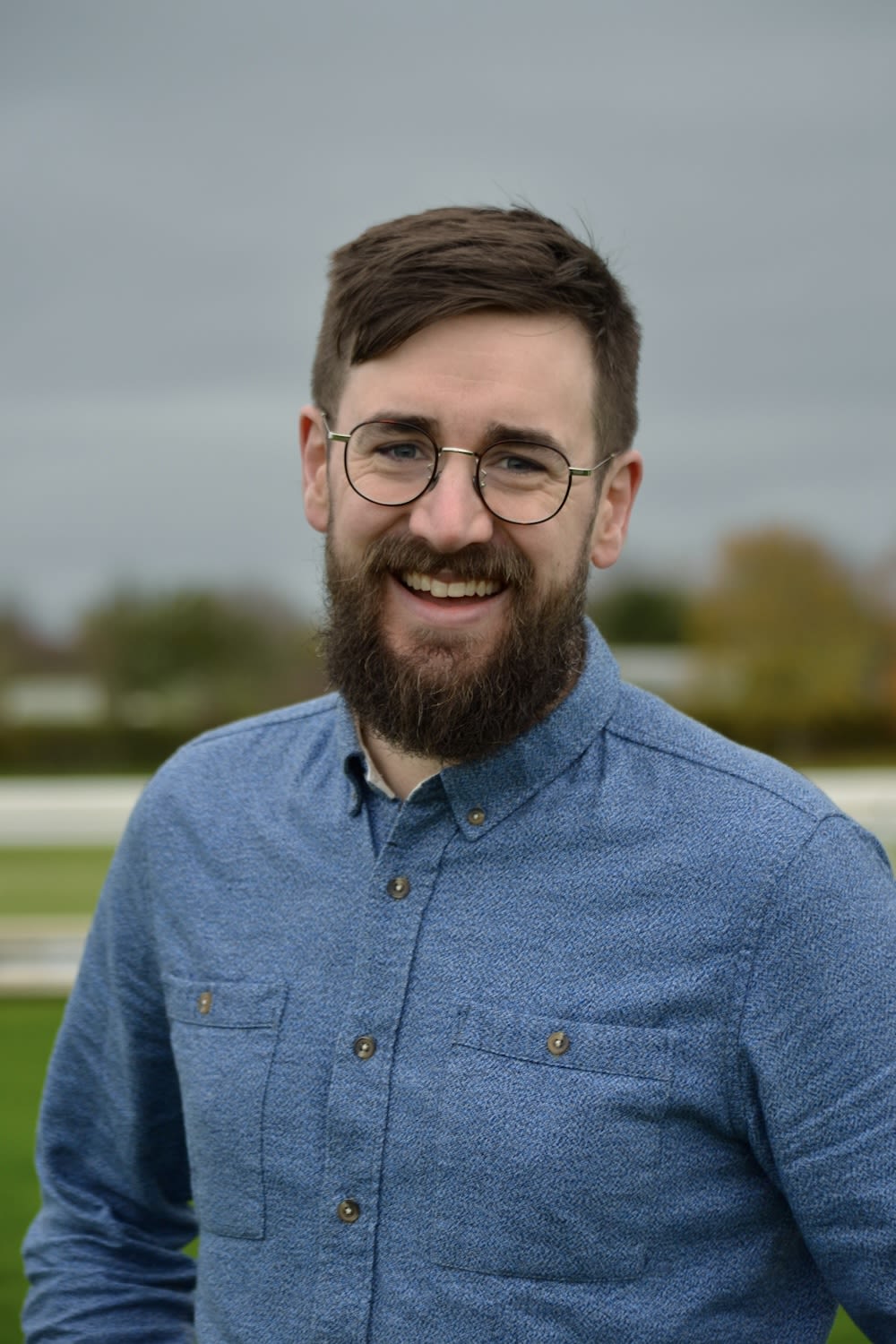
Dr. Stuart Higgins, UKRI Future Leaders Fellow and Lecturer in Biomedical Engineering in the School of Physics, Engineering and Technology
Dr. Stuart Higgins, UKRI Future Leaders Fellow and Lecturer in Biomedical Engineering in the School of Physics, Engineering and Technology
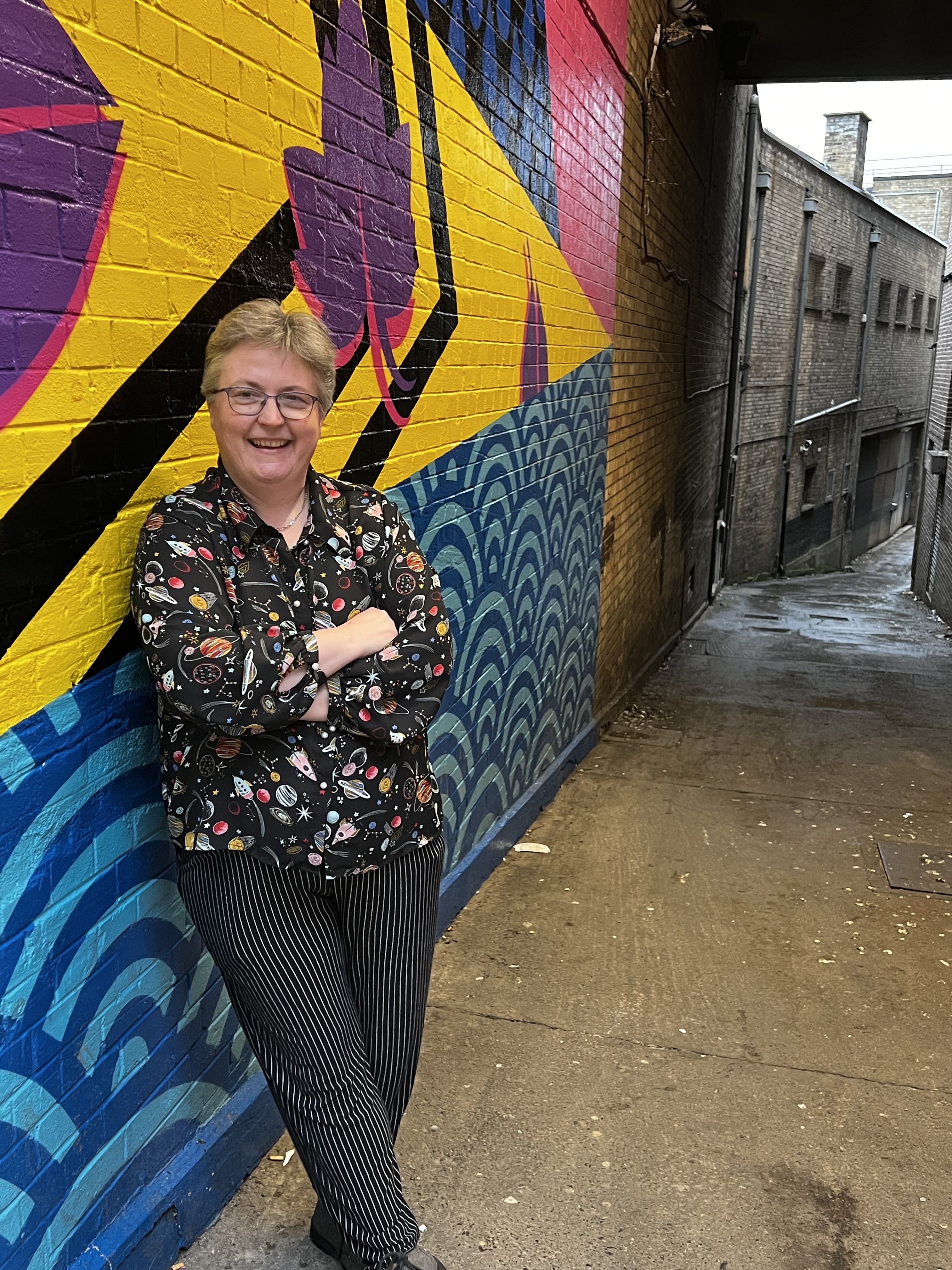
Professor Rachel Cowgill, Professor of Music in the School of Arts and Creative Technologies (University of York)
Professor Rachel Cowgill, Professor of Music in the School of Arts and Creative Technologies (University of York)
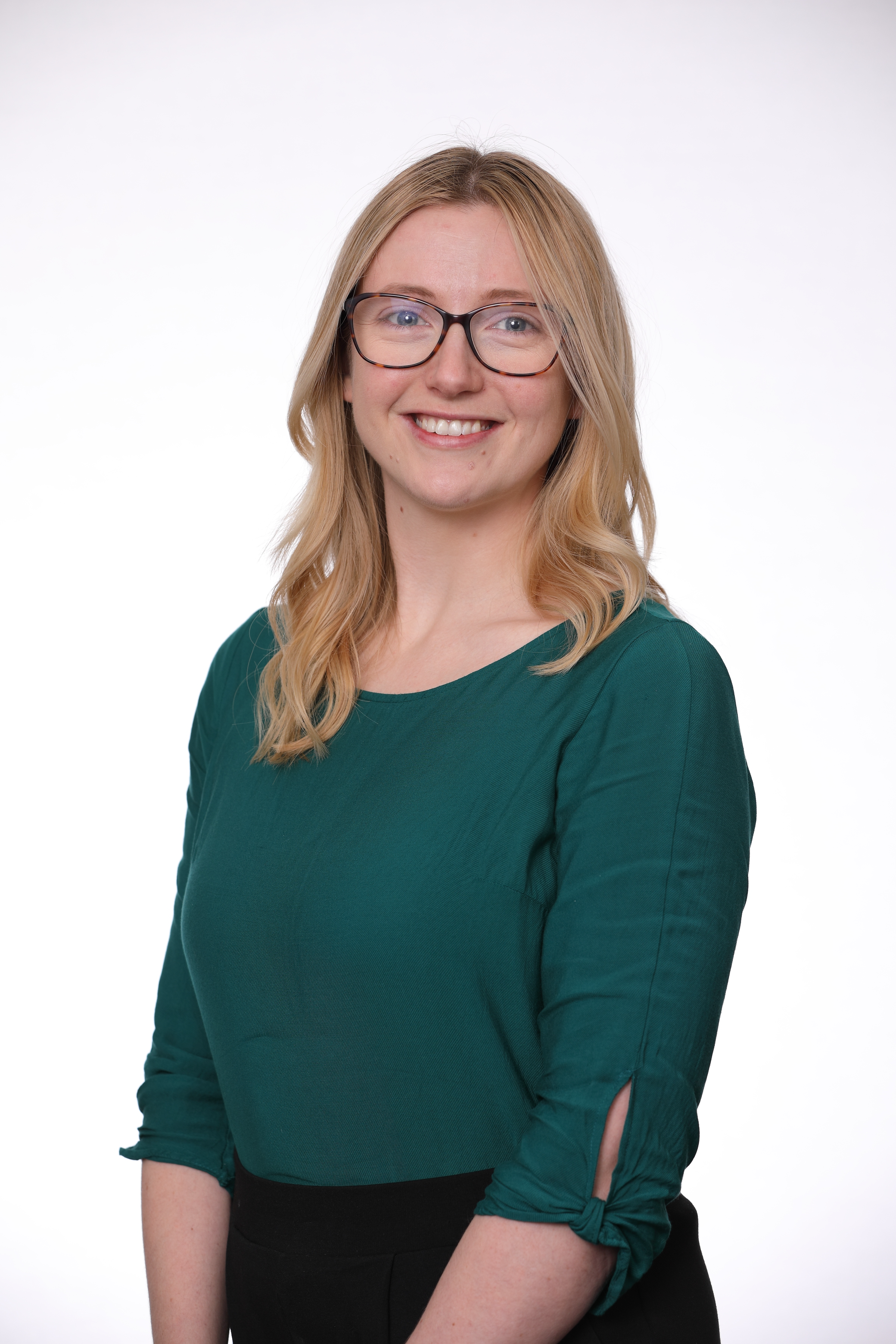
Megan Wright, PhD Researcher in the Education Department (University of York) and joint first place winner and People’s Choice Award recipient of the PhD Spotlight 2023 competition
Megan Wright, PhD Researcher in the Education Department (University of York) and joint first place winner and People’s Choice Award recipient of the PhD Spotlight 2023 competition
Judging Criteria and Prizes
2024 Prizes
1st place - £100 voucher
2nd place - £75 voucher
3rd place - £50 voucher
People's choice - £25 voucher
Judging Criteria
Finalists will be judged according to the following:
- Creativity: Produce a display or experience with visual appeal and coherence
- Impact: Relevance of your display outside a single field/academia
- Communication: Inform the public and non-specialist audiences about your research in exciting ways
- Originality: The display should be based on your original research and contribution to knowledge
